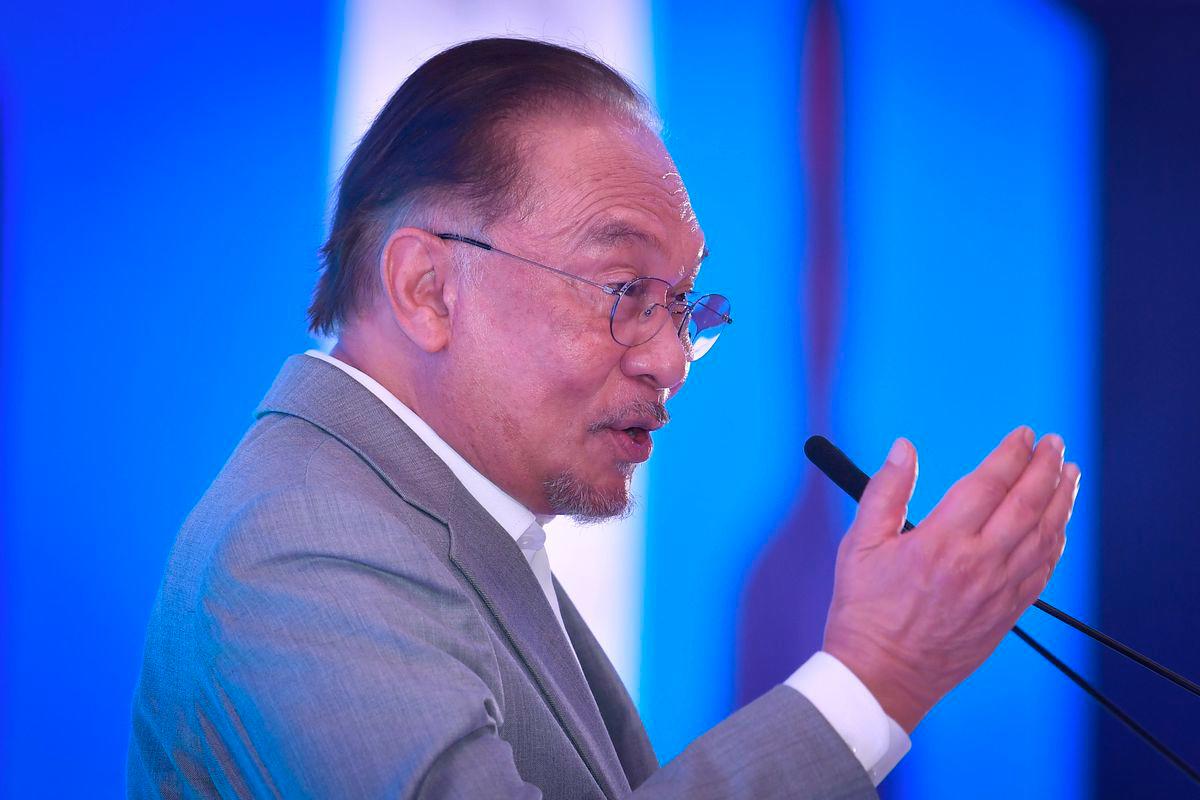KUALA LUMPUR: Prime Minister Datuk Seri Anwar Ibrahim has renewed calls for structural reforms in Malaysia’s economic framework, stressing the urgent need for targeted subsidy rationalisation and comprehensive tax reform to secure long-term fiscal sustainability and social equity.
He said the current blanket subsidy model is unsustainable as it disproportionately benefits the wealthy and foreigners rather than poor Malaysians it is meant to support.
“Subsidies for the poor and needy are not wrong. They are essential, but our system also benefits the rich and even foreigners who don’t pay taxes here. That burdens the country.
“The fiscal reforms we’ve introduced may not be popular but they are necessary,” he said at the Sasana Symposium 2025 held at Sasana Kijang, Bank Negara Malaysia yesterday.
Addressing concerns over fuel subsidies, particularly for RON95, Anwar said rationalisation is crucial to ensure fairness and safeguard the nation’s finances.
He accused opposition parties of spreading misinformation online, which has contributed to public confusion and resistance to reform.
“Subsidy rationalisation must happen. The Opposition has created a negative narrative online. But it’s our responsibility to communicate the rationale clearly, so that people understand and support the need for change.”
Anwar said subsidies must be targeted, not blanket, to ensure that aid reaches those who genuinely need them.
He said public discourse is vital to ensure that reform policies are not only well designed but also effectively implemented and embraced by the wider public.
On tax reform, he said Malaysia must broaden its revenue base to improve education and healthcare, and address emerging challenges such as digitalisation.
“But nobody wants to pay, including the very rich. That’s the challenge.”
He said tax reform is essential to expand fiscal capacity, strengthen enforcement and plug leakages while ensuring that the poor are not unfairly burdened.
Anwar also said financial institutions, including the central bank, must play an active role in advancing reform efforts and promoting public understanding.
“The role of Bank Negara and financial institutions isn’t just to support reform but to help society understand these changes.”
He underscored the importance of strengthening Malaysia’s workforce through investment in TVET, digital upskilling and labour market
reforms to meet the country’s growing industrial and digital ambitions.
Citing partnerships with global tech giants such as Nvidia, Infineon and AMD, Anwar said Malaysia must be ready to meet future industry demands with home-grown talent.
He said institutional integrity must remain a core pillar of reform.
Anwar also called for stronger anti-corruption enforcement, greater transparency and accountability across ministries, agencies and the private sector.
“As the Asean chair this year, Malaysia is committed to deepening regional integration while maintaining balanced ties with key global partners, including the United States, China and the European Union.”









